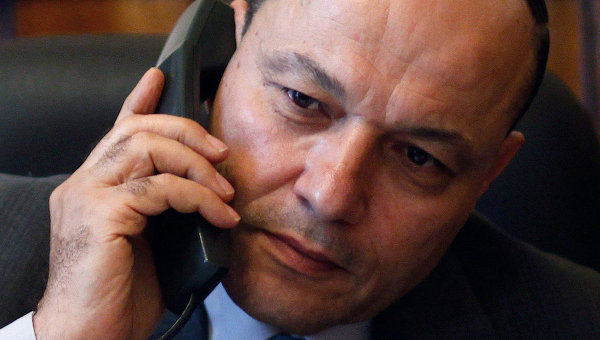CAIRO: Robert Ménard has resigned as the Director-General of the Doha Center for Media Freedom, citing restrictions on the center’s actions by the Qatari government. The heads of the assistance, research and communications departments have also resigned in protest.
The center has been suffocated. We no longer have either the freedom or the resources to do our work, Ménard was quoted as saying in a press release issued by the center.
Ménard resigned on June 19, a little more than a year after assuming the directorship position in April 2008. The center, a partnership between the organization Reporters Without Borders and the government of Qatar, was the first organization established in the Middle East with the primary mission of defending journalistic freedom. It was established with the support of Sheikha Mozah bint Nasser Al-Missned, the wife of the Emir of Qatar.
His tenure as director was dominated by conflict with President of the Board Sheikh Hamad bin Thamer Al Thani, who is also Chairman of the Board of Al-Jazeera.
Sara Kianpour, who resigned from her position as Head of Communications at the center, explained that Sheikh Hamad was a major obstacle to its operation. Kianpour told Daily News Egypt that Sheikh Hamad violated the understanding between Reporters Without Borders and the Qatari government that the Doha Center would operate with editorial independence.
“They wanted to control every protest written by the center, she said. The aim of the center is to protest every time press freedom is violated. If every time you have to send a press release to five or six persons to approve what you’re writing, you would never be able to do anything.
Kianpour alleged that Sheikh Hamad unilaterally changed the internal rules of the Doha Center that had been approved by the entire board. We had agreed on internal rules in October 2008, she said. Afterwards we received a new version from him; he had decided to control all the things that the center wanted to write.
The center had also faced difficulties in financing their activities. According to a June 22 press release, the center never received their yearly budget, which should have been paid by April 1 of this year.
But the Doha Center has yet to see these funds. Without them, it was unable support its projects, which aim to aid and protect threatened journalists.
Projects initiated by the organization include providing bulletproof jackets for journalists in Somalia, Iraq, and Pakistan, founding an independent news agency in Somalia, as well as initiating a press center in Gaza.
Additionally, the center also encountered obstacles reporting on issues of media freedom in Qatar. “How can we have any credibility if we keep quiet about problems in the country that is our host? Ménard asked rhetorically in the press release.
Kianpour agreed that it was hypocritical for the organization to criticize other governments but ignore restrictions in the center’s home country. “We were clear at the beginning, she said. For our credibility it is impossible for us to criticize Bahrain or Morocco and never say anything regarding press freedom in Qatar.
According to Kianpour, Qatar was viewed by Ménard as the only country in which we could create such a center. Qatar is home to Al-Jazeera, one of the Arab world s more prominent news sources, as well as many other foreign-oriented operations. As a result, the country was viewed as the best choice for the center.
The controversy calls into question the choice of Qatar to champion media freedom in the Middle East.
The center’s operations have not been without criticism, however. Since being named head of the Doha Center in 2008, Ménard has come under increasing scrutiny from both Qatari authorities and the local press. Mounting criticism in Qatari papers Al-Sharq and Al-Watan focused on his disapproval of internet censorship in the UAE, alleging he supported pornography.
The editors responsible for publishing the notorious cartoon of Prophet Mohamed (PBUH) in a Danish paper attended UNESCO s World Press Freedom Day event held in Qatar. Papers accused Ménard of being involved.
Lawrence Pintak, founding dean of the Edward R. Murrow College of Communication at Washington State University and former director of the Kamal Adham Center for Journalism Training and Research at the American University in Cairo, suggested that Ménard s actions did not take into consideration the role and reputation of the Qatari government.
Just as Al-Jazeera cannot stray too far from Qatari foreign policy, neither could the Doha Center. Ménard crossed the red lines and took steps that were guaranteed to anger people, Pintak wrote in an email to Daily News Egypt.
Al-Jazeera, Pintak believes, is able to enjoy relative media freedom because its reports do not address the actions of the Qatari government.
The feeling in the Al-Jazeera newsroom is that it is a small price to pay for being able to be aggressive elsewhere. After all, they argue, how much happens in Qatar that anyone cares about? -Additional reporting by Tyler Waywell.
